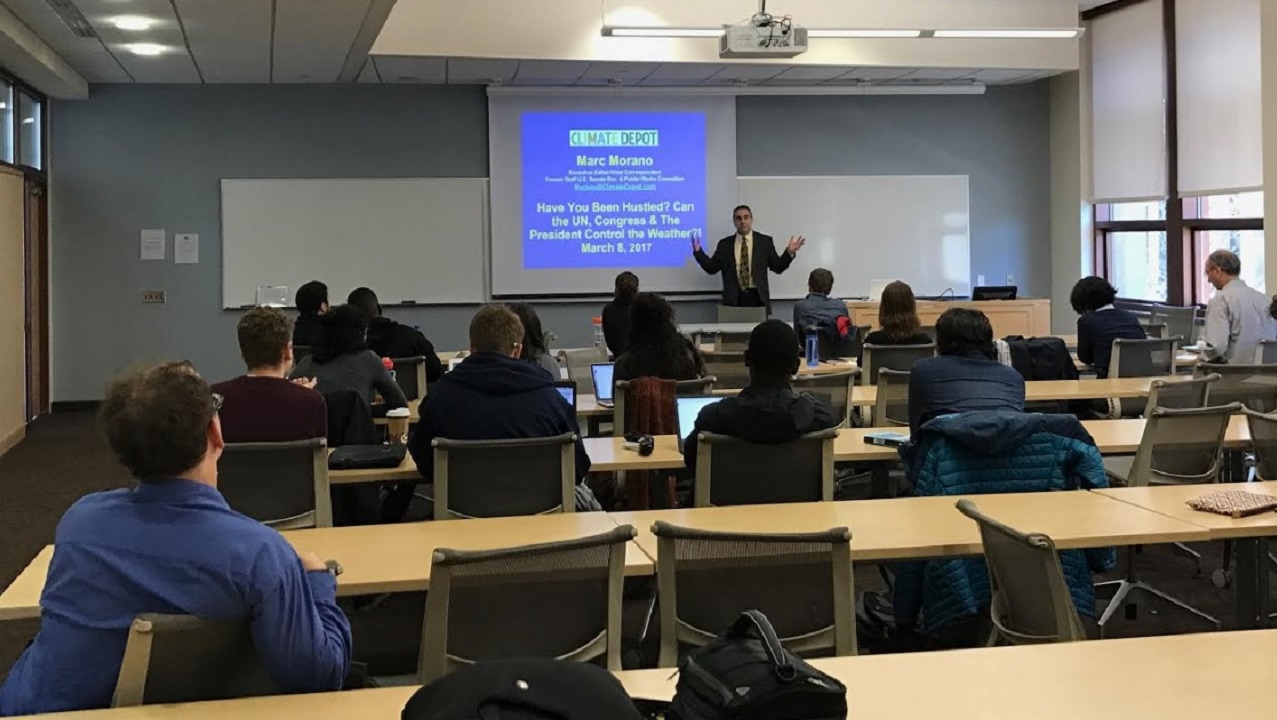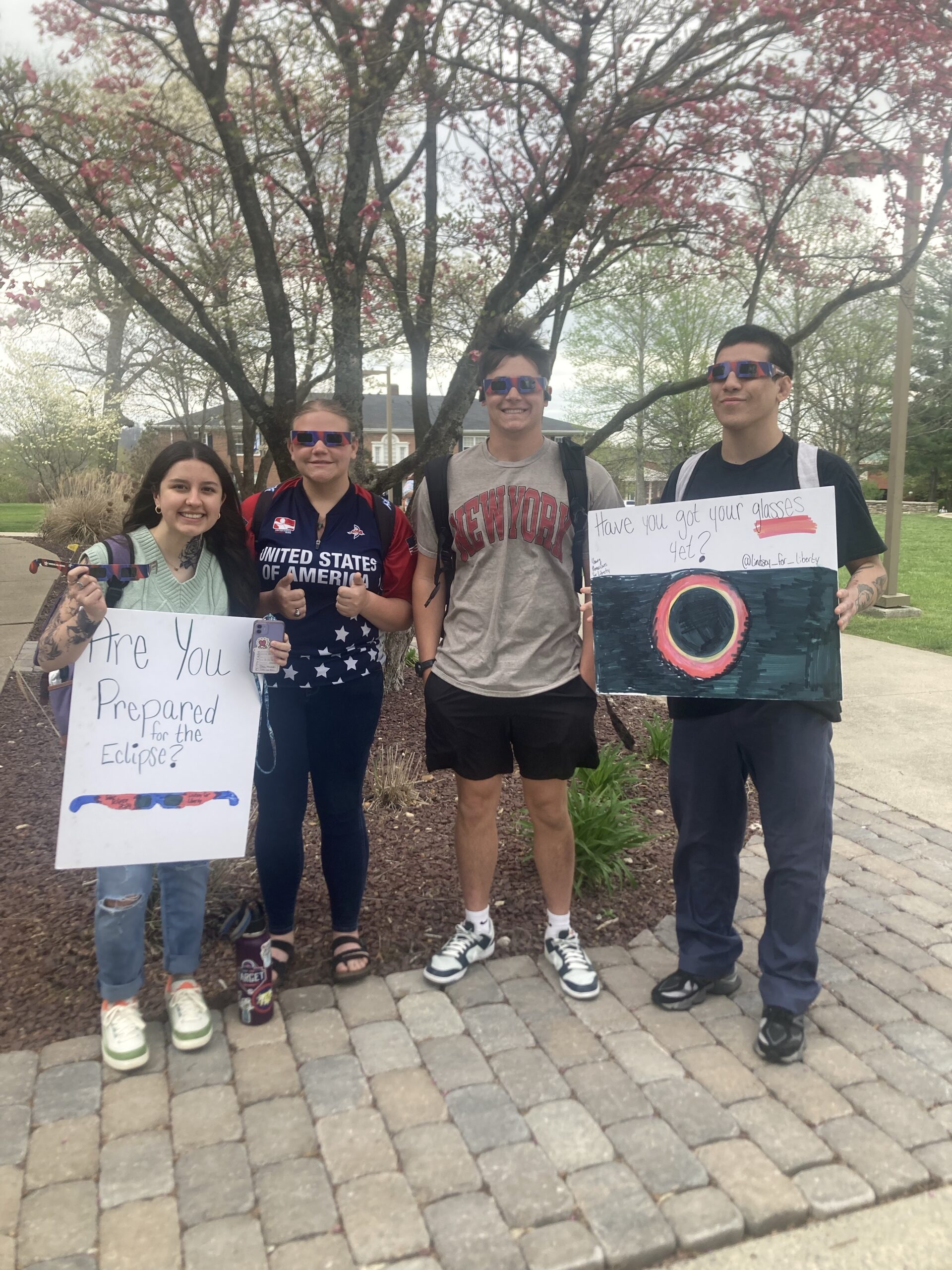Professor of Global Environmental Politics, Paul Wapner, invited Mark Morano to speak with students in their graduate program for American University in Washington, DC. Providing a 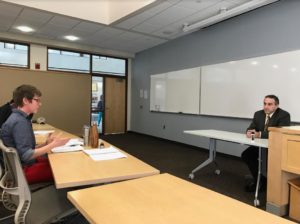 refreshing change from his one-sided colleagues, Professor Wapner, despite being quite liberal himself, appreciated the opportunity for his students to hear both sides on the issue of climate change, in the true spirit of academic freedom.
refreshing change from his one-sided colleagues, Professor Wapner, despite being quite liberal himself, appreciated the opportunity for his students to hear both sides on the issue of climate change, in the true spirit of academic freedom.
In addition to those regularly attending the class, Morano drew additional students and community members who were skeptical of his stance on climate change, but were nevertheless interested to hear what he had to say. Morano spoke about the “doomsday” nature of many climate scientists 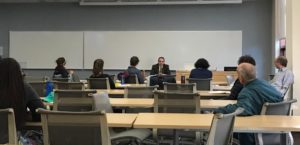 and how many “climate alarmists” greatly over exaggerated the danger of changes in climate.
and how many “climate alarmists” greatly over exaggerated the danger of changes in climate.
“It was very satisfying to actually engage in a genuine climate debate at a University,” said Morano. “The students really seemed to appreciate being challenged and it was a open and contentious exchange at times. Kudos to the Professor Paul Wapner for making this forum possible. The more CFACT penetrates the college scene, the more students’ minds will be opened.”
Next, Morano touched on the widely varied opinions about the danger of climate change among the science community, specifically debunking the widely-cited statistic that 97% of scientists believe in the danger that climate change poses. Morano explained that no one can provide the actual study or numbers behind the poll that supposedly created the 97% number. It was a number made up by those who looked at about 76 scientific journals and lumped them into all agreeing on climate alarmism. The 97% does not even come from 97 scientists. He also showed two clips from his movie, Climate Hustle, that further supported his point. Then, Morano took questions from the community members and students who attended his speech.
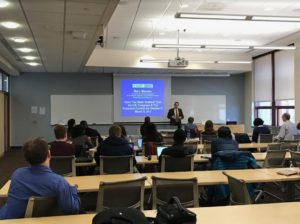 The questions began in a very docile and reasonable manner. However, once one professor in the environmental science department began asking questions, the mood of the room greatly shifted. The professor asked what Morano’s point was when he spoke about debunking the statistics regarding “climate alarmists.” When Morano began to explain his base opinion on climate change, the professor rudely interrupted him and repeated his question. Unfortunately, Morano could not satisfy the professor’s unreasonable question with a response, so he moved on to other questions that were more thoughtful.
The questions began in a very docile and reasonable manner. However, once one professor in the environmental science department began asking questions, the mood of the room greatly shifted. The professor asked what Morano’s point was when he spoke about debunking the statistics regarding “climate alarmists.” When Morano began to explain his base opinion on climate change, the professor rudely interrupted him and repeated his question. Unfortunately, Morano could not satisfy the professor’s unreasonable question with a response, so he moved on to other questions that were more thoughtful.
